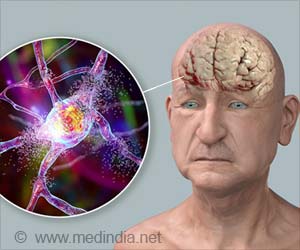A study in mice has revealed that bacteria can easily travel from the nose to the brain while nose-picking and could potentially cause symptoms of Alzheimer’s disease.
- Alzheimer’s disease affects millions of people worldwide, and not much is understood about the cause
- A recent study in mice suggests that picking your nose can help certain bacteria travel from the nose to the brain, causing dementia-like symptoms
- Further investigations are required, but the study may be a step closer to understanding how Alzheimer’s disease is caused
Even though the study was based on mice, there is definitely something worth investigating here. This could also help us understand the mystery of why and how Alzheimer’s starts.
Nose Picking: A Convenient Route for the Bacteria to the Brain
A group of researchers from Griffith University in Australia ran tests with a bacteria called Chlamydia pneumoniae, which can infect humans and cause pneumonia. The bacteria have also been seen in the majority of human brains affected by late-onset dementia. The research has been published in Scientific Reports.It was seen that there was a deposit of amyloid-beta protein – a protein that is released in response to infections in the mice’s brains. Clumps of this protein have been found in significant levels in people with Alzheimer's disease.
"We're the first to show that Chlamydia pneumoniae can go directly up the nose and into the brain where it can set off pathologies that look like Alzheimer's disease," says neuroscientist James St John from Griffith University in Australia.
"We saw this happen in a mouse model, and the evidence is potentially scary for humans as well."
The Nose Could be an Expressway to the Brain
The researchers were taken aback by the speed at which C. pneumoniae took hold in the central nervous system of the mice, with infection happening within 24 to 72 hours. It is postulated that bacteria and viruses see the nose as a fast-track route to the brain.While the effects in humans are not yet certain, in fact, it is not even fully understood if amyloid-beta plaques are a cause of Alzheimer's, it is imperative to further investigate promising leads in the fight to decode this common neurodegenerative condition.
"We need to do this study in humans and confirm whether the same pathway operates in the same way," says St John.
"It's research that has been proposed by many people, but not yet completed. What we do know is that these same bacteria are present in humans, but we haven't worked out how they get there."
For the Sake of Science, Please Stop Picking Your Nose
While further studies into the same processes in humans are planned, in the meanwhile, St John and his colleagues suggest that picking your nose and plucking your nose hair are ‘not a good idea’ because of the potential damage they do to protective nose tissue.Now researchers want to find out if the increased amyloid-beta protein deposits are a natural, healthy immune response that can be reversed when the infection is fought off.
There is currently no cure for Alzheimer's disease, which is a terribly complex disease. There are countless studies conducted on Alzheimer's disease with scientists trying to find every possible angle to find out what causes this disease and how they can come closer to stopping it. This research might be a step in the right direction.
"Once you get over 65 years old, your risk factor goes right up, but we're looking at other causes as well because it's not just age – it is environmental exposure as well," says St John.
"And we think that bacteria and viruses are critical."
Reference:
- Chlamydia pneumoniae can infect the central nervous system via the olfactory and trigeminal nerves and contributes to Alzheimer’s disease risk - (https://www.ncbi.nlm.nih.gov/pmc/articles/PMC8854390/)
Source-Medindia










